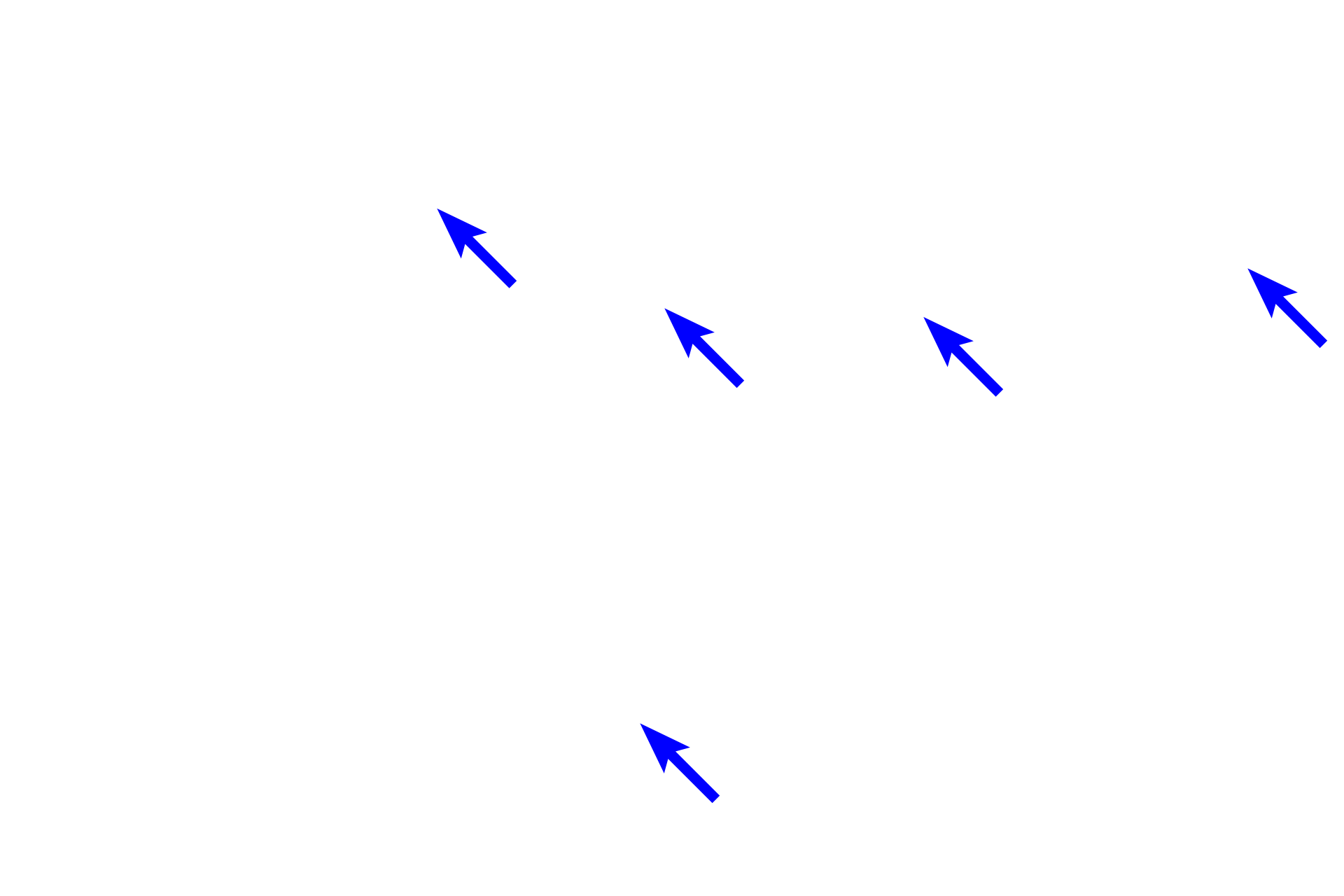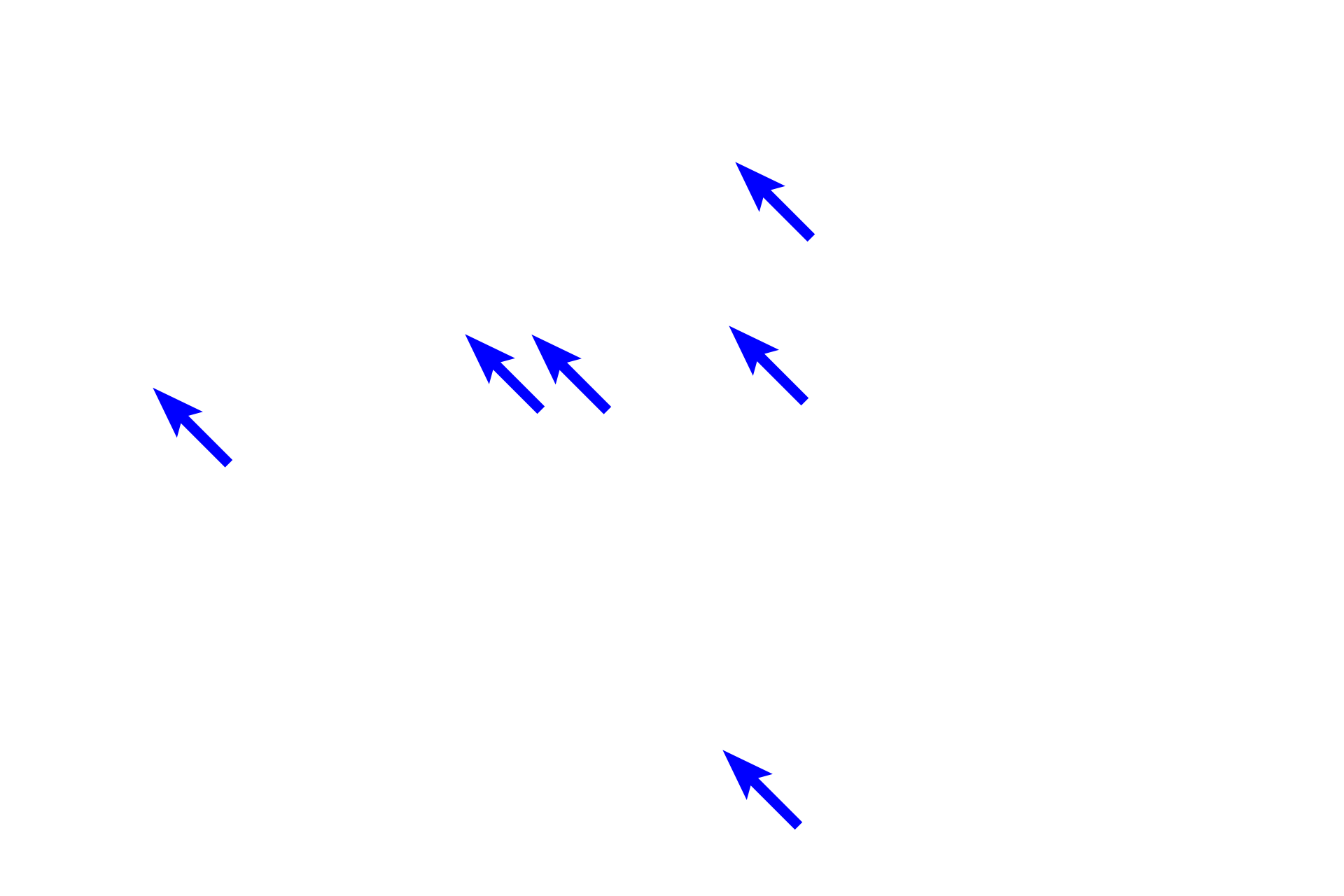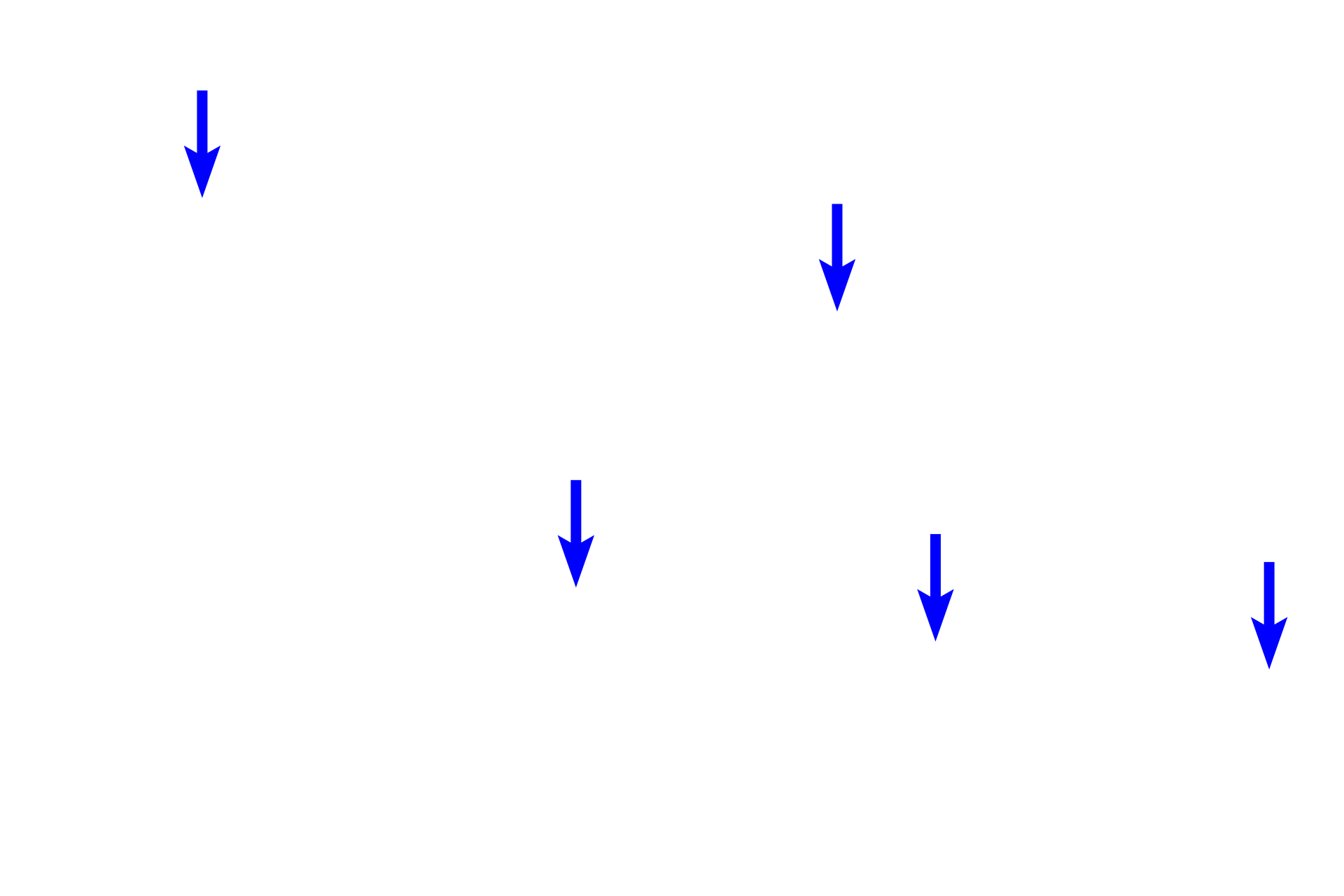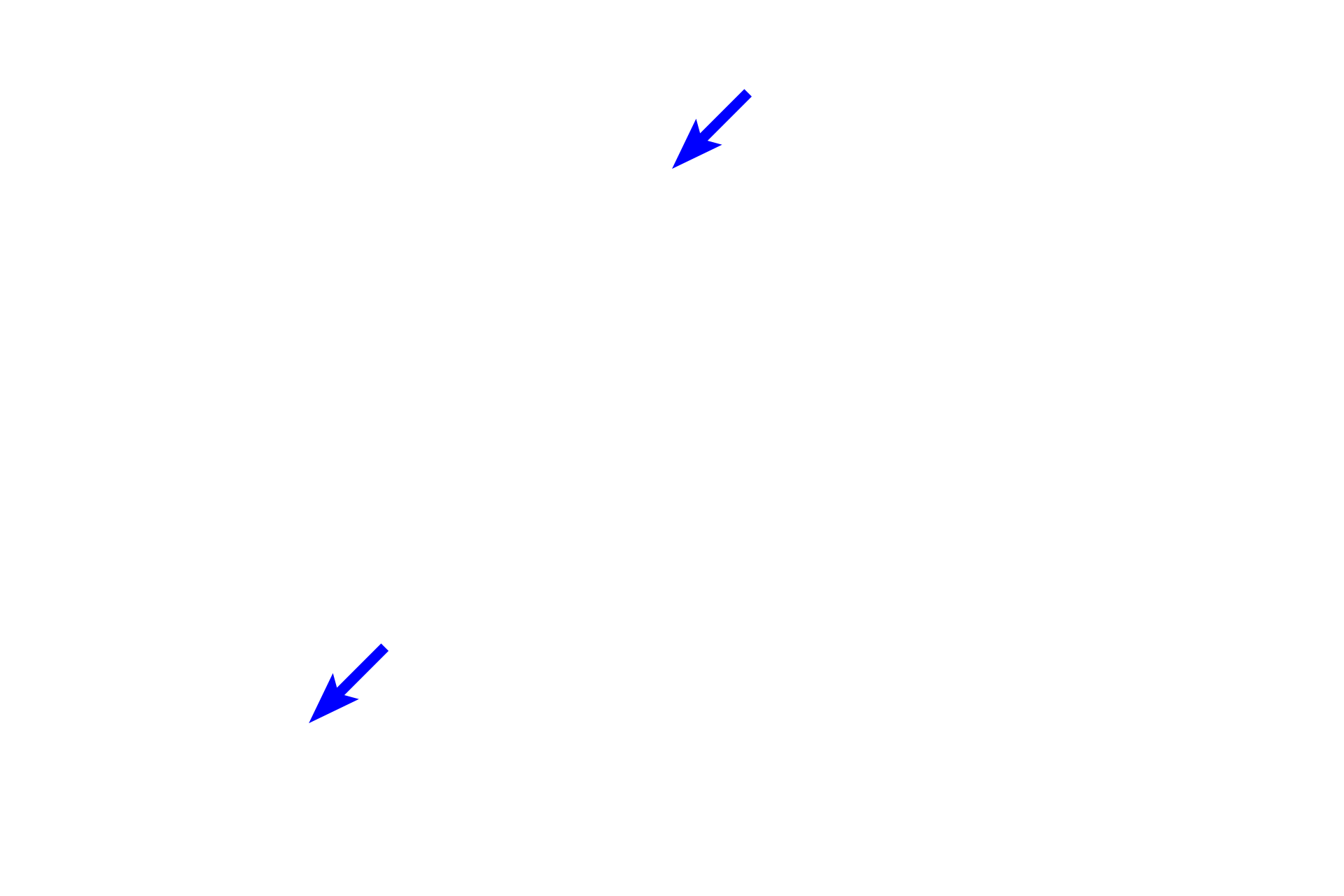
Pars nervosa
The pars nervosa is continuous with the infundibulum, the extension of the hypothalamus, and, thus, resembles nervous tissue. Unmyelinated axons from neurons in the supraoptic and paraventricular hypothalamic nuclei travel into the pars nervosa via the infundibulum and end as Herring bodies. Also present among the axons and terminals are pituicytes, highly branched cells that resemble astrocytes. 1000x

Unmyelinated axons
The pars nervosa is continuous with the infundibulum, the extension of the hypothalamus, and, thus, resembles nervous tissue. Unmyelinated axons from neurons in the supraoptic and paraventricular hypothalamic nuclei travel into the pars nervosa via the infundibulum and end as Herring bodies. Also present among the axons and terminals are pituicytes, highly branched cells that resemble astrocytes. 1000x

Herring bodies
The pars nervosa is continuous with the infundibulum, the extension of the hypothalamus, and, thus, resembles nervous tissue. Unmyelinated axons from neurons in the supraoptic and paraventricular hypothalamic nuclei travel into the pars nervosa via the infundibulum and end as Herring bodies. Also present among the axons and terminals are pituicytes, highly branched cells that resemble astrocytes. 1000x

Pituicytes
The pars nervosa is continuous with the infundibulum, the extension of the hypothalamus, and, thus, resembles nervous tissue. Unmyelinated axons from neurons in the supraoptic and paraventricular hypothalamic nuclei travel into the pars nervosa via the infundibulum and end as Herring bodies. Also present among the axons and terminals are pituicytes, highly branched cells that resemble astrocytes. 1000x

Capillaries
The pars nervosa is continuous with the infundibulum, the extension of the hypothalamus, and, thus, resembles nervous tissue. Unmyelinated axons from neurons in the supraoptic and paraventricular hypothalamic nuclei travel into the pars nervosa via the infundibulum and end as Herring bodies. Also present among the axons and terminals are pituicytes, highly branched cells that resemble astrocytes. 1000x
 PREVIOUS
PREVIOUS